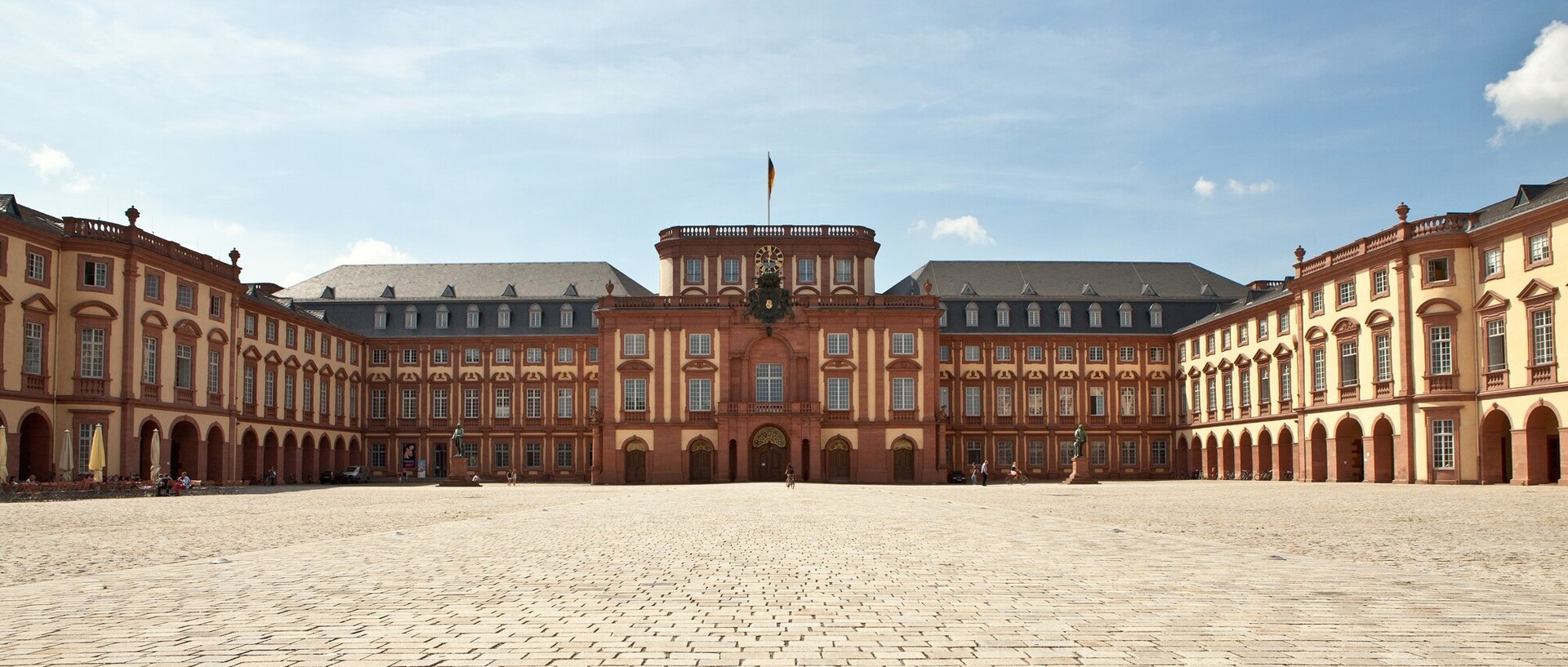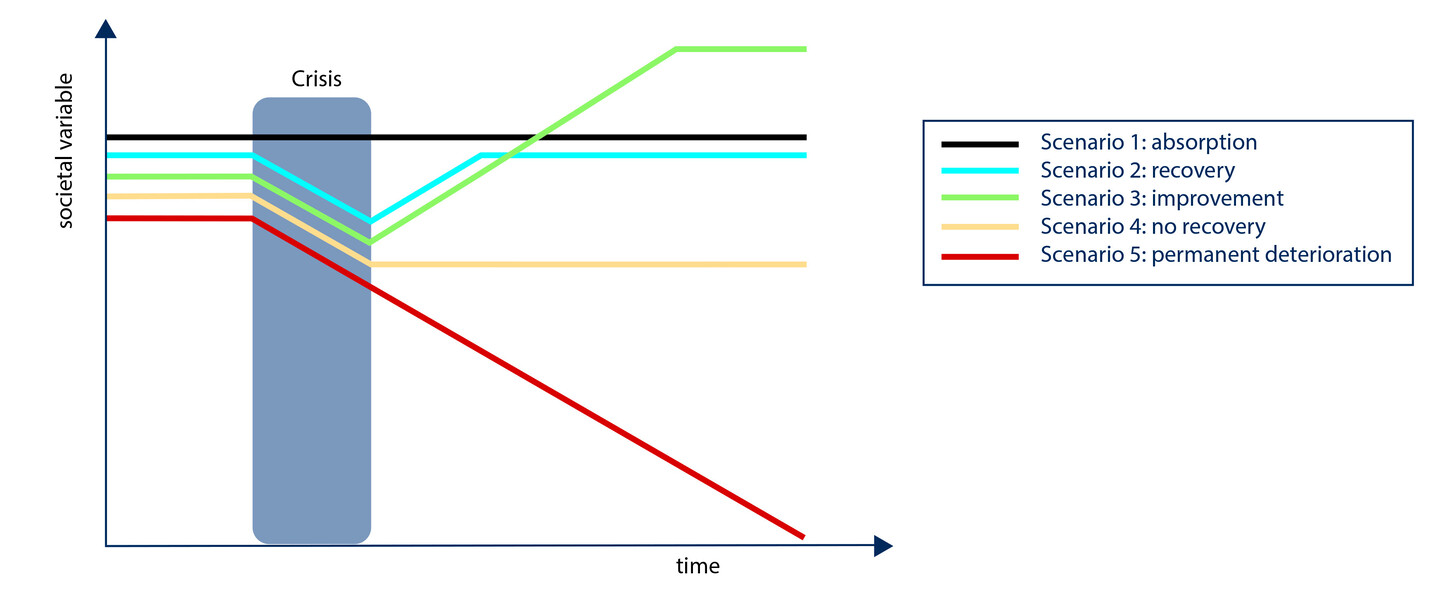Mission
The MCCR studies the resilience of societies in times of crisis. A multidisciplinary research team from economic and social sciences, data and computer science, and media and communication studies seek to understand the complex impact of crisis situations on society. The aim of the MCCR is to better understand and improve the resilience of society in times of crises.
Definitions
To discuss and study societal resilience in times of crises, especially when applying a multidisciplinary perspective, a common language based on clear definitions is required. Our definitions of concepts are sufficiently general to cover many different crisis situations, and at the same time specific enough to allow systematic empirical evaluation.
Crisis
We understand a crisis as a critical, non-routine situation for a society which demands immediate attention and action to prevent or mitigate damage to or loss of the well-being of society and its constituent parts when its pillars such as economic prosperity, health, safety, fiscal capacity, democratic institutions, and procedures are threatened. In such a non-routine situation where much is at stake, conventional wisdom and established best practices fail, while decisions have to be made under high levels of uncertainty.
Resilience
We understand resilience as the capacity to absorb, respond to, and recover from crises. In order to evaluate the degree to which a society is resilient it is important to compare its diversion from its initial state, and whether it is able to bounce back or improve. In an ideal case, a crisis serves as an opportunity to move to a post-crisis state that is more favorable than the pre-crisis state. Thus, measures of crucial indicators of wellbeing or stress provide an indication whether society recovers despite the impact of crises (see figure below). Critically, the resilience of any part of society depends on the complex interaction of the perceptions, preferences, and actions of societal actors, and we need to understand and explain the forces that affect these perceptions, preferences, and actions before and during a crisis. These forces can both (i) undermine resilience up to the point where a crisis is triggered and (ii) be amplified by a crisis which reinforces its effects on societal actors.
The figure below shows different developments of a societal variable (ordinate) over time (abscissa). In all five scenarios, the societal variable initially is at a high level, and we assume that such a high level is desirable from the society’s perspective. When a crisis hits (blue box), the variable may not react at all (scenario 1) or in different ways as exemplified in scenarios 2–5. According to our definition of resilience, the societal variable shows resilience in scenarios 1, 2, and 3 where it either keeps or regains its pre-crisis level or even achieves a higher level post-crisis. In contrast, the societal variable is not resilient in scenarios 4 and 5 where it remains on a lower level or permanently deteriorates post-crisis.
Societal resilience in times of crises
Societal resilience has become a guiding principle for policy planning in Western democratic societies. However, recent events such as the COVID-19 pandemic or economic and political turmoil have underscored the lack of robust theoretical, methodological, and empirical knowledge to explain and improve societal resilience during times of crises. In response to this pressing need, the MCCR strives to investigate societal resilience in times of crises.
Investigating resilience of individuals and institutions
Given that societal resilience is determined by the resilience of its constituent elements on the micro level and their interactions, we will investigate the resilience of individuals in various domains of life as well as their complex interactions with each other and with institutions, public policies, and interventions designed to improve societal resilience.
The Mannheim Center for Crisis Research will develop and apply theory-guided empirical approaches to study
- the resilience of individuals regarding their health, work situation, and decision-making,
- their resilience as citizens in the context of political preferences, perceptions, and beliefs and their interactions with media and politicians, and
- the resilience of institutions and the effectiveness of public policies devised to improve societal resilience and their interactions with the resilience of individuals.
Dealing with the complexity of crisis effects
The investigation of the complex effects of crises on societal resilience requires multidisciplinary research and overcoming methodological challenges which result from the highly dynamic development and heterogenous effects of crises. Drawing on the University of Mannheim's excellent economic and social science disciplines, researchers from different fields will collaborate to develop and apply innovative methods for more fine-grained and quicker causal analyses which are necessary to explain societal resilience in times of crises. To achieve this goal, the Mannheim Center for Crisis Research will implement innovative organizational measures that surmount communication barriers between disciplines and establish a common research platform.
Advancing evidence-based policymaking in crises
The research will focus on Germany, although some projects will examine specific aspects of societal resilience in the context of the European Union (EU) and non-EU countries. The Mannheim Center for Crisis Research will provide valuable explanations of societal resilience and advance evidence-based policymaking in times of crises.

